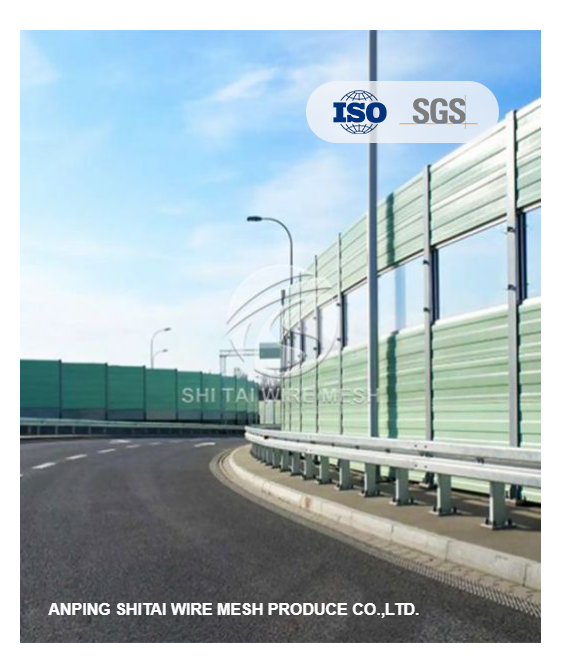Noise Barriers: Architectural & Industrial Noise Control
Apr. 18, 2024
In both urban and industrial settings, noise pollution can be a persistent issue, affecting the quality of life and productivity of individuals. To address this concern, noise barriers have emerged as essential solutions for controlling and mitigating noise levels. Whether used in architectural or industrial contexts, noise barriers play a crucial role in creating quieter and more comfortable environments.
The Importance of Noise Barriers:
Noise pollution is a growing concern worldwide, impacting the health and well-being of individuals.
Noise barriers serve as effective measures to reduce noise levels and create more peaceful surroundings.
In architectural settings, noise barriers help minimize external noise from traffic, construction, or industrial activities, enhancing the comfort of residents and occupants.
In industrial environments, noise barriers are utilized to contain and mitigate noise generated by machinery, equipment, and manufacturing processes, ensuring a safer and more productive workplace.
Architectural Noise Barriers:
Architectural noise barriers are designed to blend seamlessly with the surrounding environment while providing effective noise reduction.
Common materials used for architectural noise barriers include concrete, wood, metal, and composite materials.
These barriers are often installed along highways, railways, airports, and residential areas to minimize the impact of external noise on nearby residents and buildings.
Architectural noise barriers can be customized to suit specific aesthetic requirements and architectural styles, enhancing the visual appeal of urban landscapes.
Industrial Noise Barriers:
Related links:
Exploring the Versatility and Benefits of Custom Gabion Solutions
Exploring the Advantages and Applications of 3D Fences
Defensive Barriers-Solution to Military and Flood ControlIndustrial noise barriers are engineered to withstand harsh environments and effectively contain noise within industrial facilities.
They are typically constructed using heavy-duty materials such as steel, aluminum, and specialized sound-absorbing panels.
Industrial noise barriers are installed around machinery, production lines, and manufacturing areas to reduce noise exposure for workers and nearby communities.
These barriers may incorporate additional features such as access doors, ventilation systems, and fire-resistant properties to ensure compliance with safety regulations.
Advantages of Noise Barriers:
Improved Quality of Life: Noise barriers create quieter and more comfortable living and working environments, enhancing overall well-being.
Enhanced Productivity: By reducing noise levels, noise barriers contribute to increased productivity and concentration, particularly in industrial settings.
Regulatory Compliance: Noise barriers help industries comply with noise pollution regulations and standards, avoiding potential fines and penalties.
Customization Options: Both architectural and industrial noise barriers can be customized in terms of design, size, and materials to meet specific project requirements.
Noise barriers play a crucial role in mitigating the adverse effects of noise pollution in both architectural and industrial settings. By effectively reducing noise levels and creating quieter environments, these barriers contribute to improved quality of life, enhanced productivity, and regulatory compliance. Whether used alongside highways, railways, industrial facilities, or residential areas, noise barriers are indispensable solutions for achieving noise control and ensuring a better future for communities worldwide.
Related:Road Noise Barrier
167
0
0


Comments
All Comments (0)